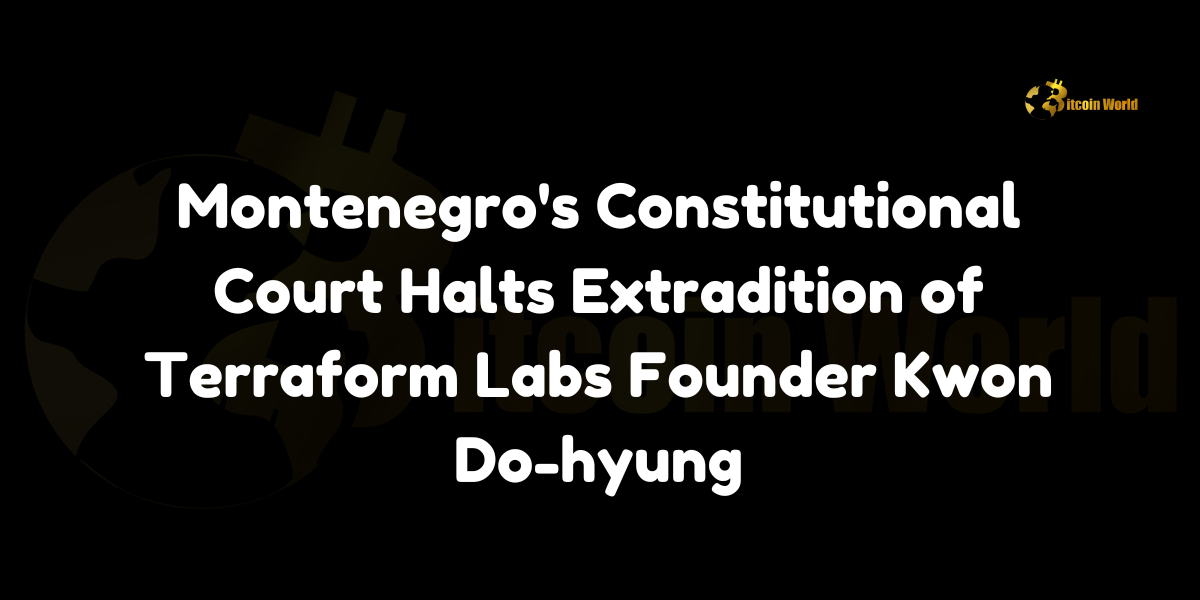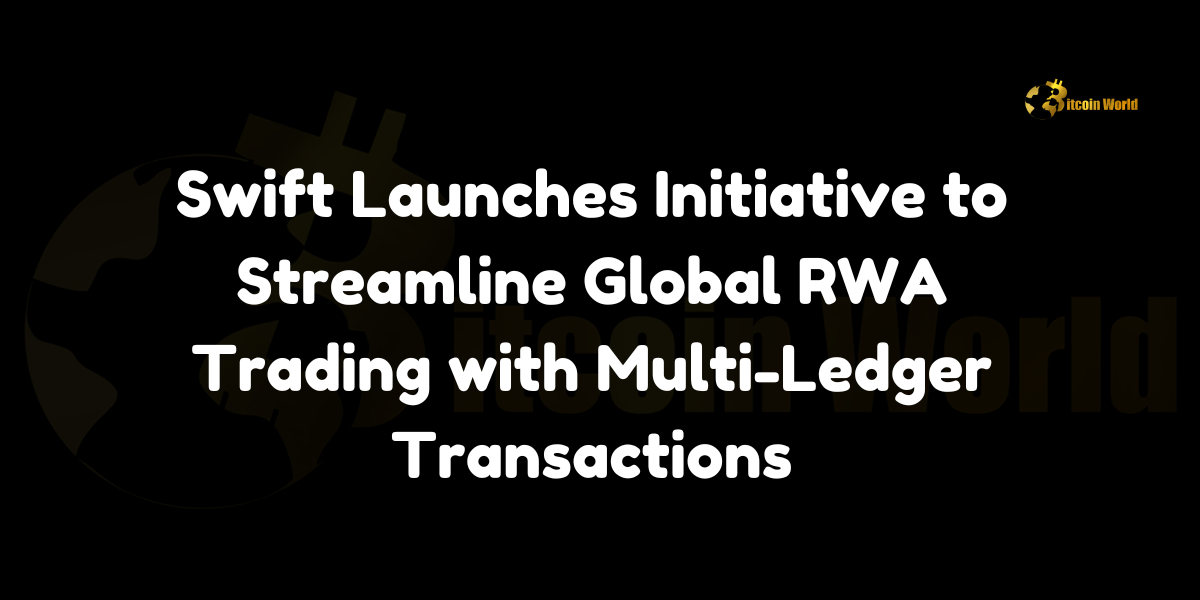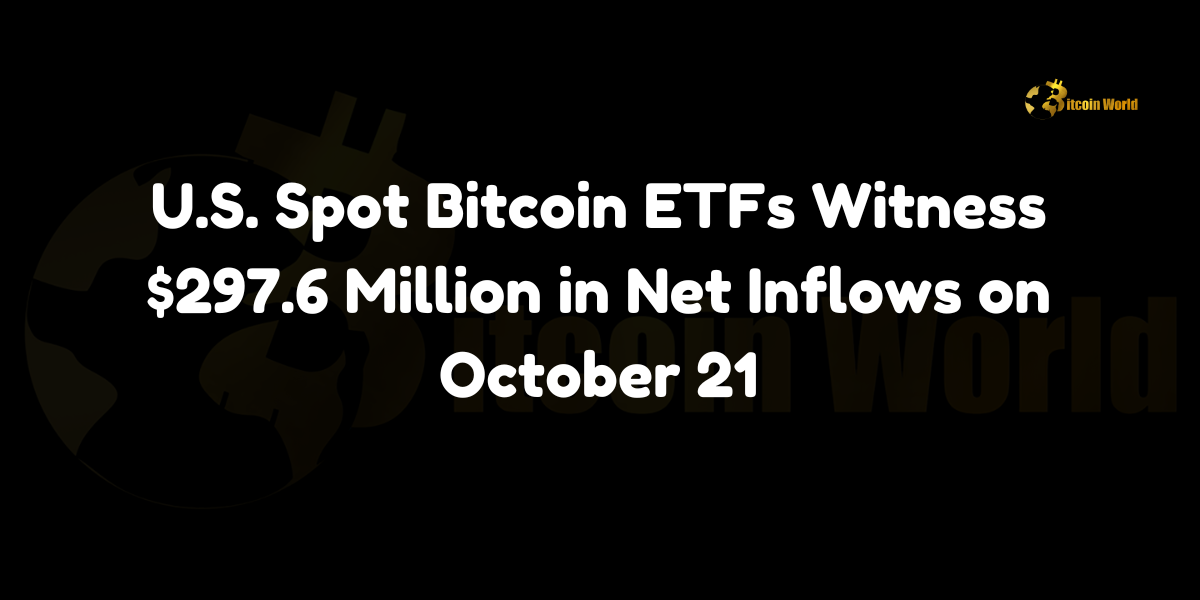Montenegro’s Constitutional Court Halts Extradition of Terraform Labs Founder Kwon Do-hyung
In a significant legal development within the cryptocurrency sector, the Constitutional Court of Montenegro has suspended the extradition of Kwon Do-hyung, the founder of Terraform Labs. This decision, reported by Yonhap News Agency, marks a pivotal moment in the ongoing legal battles surrounding one of the crypto industry’s most controversial figures.
Background: Who is Kwon Do-hyung?
Kwon Do-hyung, often referred to simply as Do Kwon, is the co-founder and CEO of Terraform Labs, the company behind the Terra blockchain ecosystem, including its native stablecoin TerraUSD (UST) and its cryptocurrency LUNA. Terraform Labs gained significant attention for its ambitious projects aimed at creating a stablecoin that maintains its peg through algorithmic mechanisms rather than traditional collateral.
However, the collapse of UST and the subsequent devaluation of LUNA in 2022 led to widespread financial losses and legal scrutiny. Do Kwon became a central figure in the fallout, facing multiple allegations ranging from fraud to market manipulation. Various jurisdictions, including South Korea and the United States, have sought his extradition to stand trial for his role in the Terra collapse.
Details of the Extradition Request
The extradition request for Kwon Do-hyung originated from South Korea, where he holds citizenship and is wanted on charges related to the collapse of Terraform Labs’ stablecoin and the ensuing financial chaos. South Korean authorities have accused Kwon of orchestrating a scheme that defrauded investors and destabilized the cryptocurrency market.
Montenegro, known for its strategic location and emerging role in the blockchain space, became the focal point of this legal saga when South Korean authorities submitted an extradition request. The case has garnered international attention, highlighting the complexities of enforcing cross-border financial regulations in the decentralized world of cryptocurrencies.
Constitutional Court’s Decision
On October 18, 2024, the Constitutional Court of Montenegro issued a ruling to suspend the extradition of Kwon Do-hyung. While the court has not publicly disclosed the detailed reasoning behind its decision, several factors likely influenced this outcome:
Legal Technicalities: The court may have found procedural errors or deficiencies in the extradition request, such as insufficient evidence or lack of jurisdiction.
Human Rights Considerations: Montenegro’s legal framework prioritizes the protection of individual rights. The court might have determined that extraditing Kwon could infringe upon his rights or that he may not receive a fair trial in the requesting country.
Diplomatic Relations: Geopolitical considerations and Montenegro’s diplomatic stance towards South Korea could have played a role in the decision-making process.
Reactions from Stakeholders
Terraform Labs and Kwon Do-hyung
Terraform Labs has remained largely silent on the court’s decision, with company spokespersons emphasizing their commitment to transparency and legal compliance. Kwon Do-hyung himself has not issued a public statement, choosing instead to maintain a low profile amidst the legal turmoil.
South Korean Authorities
South Korean officials expressed disappointment over the Constitutional Court’s decision, reiterating their determination to seek justice for those affected by the Terra collapse. They have indicated plans to appeal the decision and explore alternative legal avenues to secure Kwon’s extradition.
Crypto Community
The cryptocurrency community has reacted with a mix of relief and concern. Supporters of Kwon view the suspension as a vindication of his efforts to innovate within the blockchain space, while critics see it as a setback for accountability in the crypto industry. Discussions have intensified around the need for more robust regulatory frameworks to prevent similar incidents in the future.
Regulatory Bodies
International regulatory bodies have taken note of the case, with some advocating for enhanced cooperation between nations to tackle cross-border financial crimes in the crypto sector. The suspension of extradition in Montenegro underscores the challenges of enforcing regulations in a decentralized and globalized financial ecosystem.
Implications for the Crypto Industry
Legal Precedents
Montenegro’s decision sets a significant precedent for how extradition cases involving cryptocurrency entrepreneurs may be handled in the future. It highlights the importance of establishing clear legal protocols and international cooperation to address financial crimes in the digital age.
Investor Confidence
The outcome of this case has mixed implications for investor confidence. On one hand, the suspension might reassure some investors that not all crypto projects will lead to catastrophic failures. On the other hand, it raises concerns about the ability to hold influential figures accountable, potentially deterring institutional investment in the sector.
Regulatory Developments
Governments and regulatory bodies worldwide may take this case as a catalyst to refine and strengthen their approaches to regulating decentralized finance (DeFi) and cryptocurrency projects. The need for comprehensive legal frameworks that can effectively address the unique challenges posed by digital assets has never been more apparent.
Security Measures
Crypto platforms might increase their focus on security and compliance to avoid similar legal issues. Enhanced due diligence, transparent governance structures, and adherence to international regulations could become standard practices to protect against legal and financial risks.
Future Steps and Possibilities
Appeals and Legal Proceedings
South Korean authorities have signaled their intention to appeal Montenegro’s decision. The legal battle surrounding Kwon Do-hyung is far from over, and the outcome of potential appeals could have far-reaching consequences for international extradition laws and the crypto industry.
Continued Investigations
With the suspension of extradition, investigations into Terraform Labs and Kwon Do-hyung may continue within Montenegro’s jurisdiction. This could involve domestic legal processes aimed at uncovering further evidence and determining appropriate charges.
Impact on Terraform Labs
The uncertainty surrounding its founder could impact Terraform Labs’ operations and reputation. Stakeholders will be closely monitoring the company’s actions and any measures taken to address the legal challenges and restore trust within the community.
Conclusion
The Constitutional Court of Montenegro’s decision to halt the extradition of Kwon Do-hyung, founder of Terraform Labs, marks a critical juncture in the intersection of cryptocurrency innovation and international law. As the crypto industry continues to evolve, this case underscores the imperative for robust legal frameworks, international cooperation, and ethical practices to ensure the sector’s sustainable growth and integrity.
While the suspension of extradition offers temporary relief for Kwon Do-hyung, it also serves as a stark reminder of the ongoing challenges in regulating and governing the decentralized financial landscape. The global community will be watching closely as this legal saga unfolds, seeking to balance the promise of blockchain technology with the necessity of accountability and justice.
To learn more about the latest developments in the cryptocurrency industry, explore our article on latest news, where we delve into the most significant events and their impact on the digital financial landscape.





